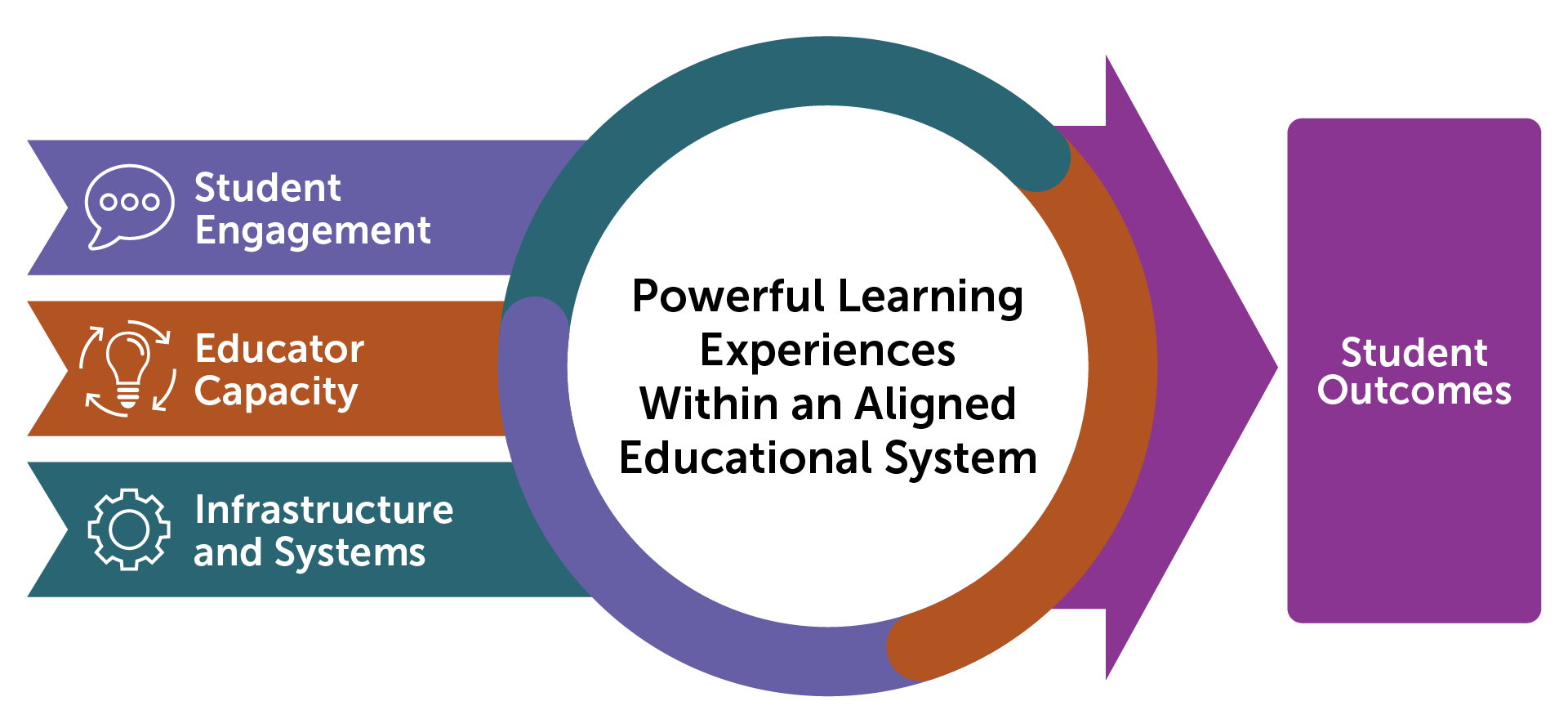Many of the challenges school districts face serve as barriers to powerful learning and prevent students from achieving outcomes and reaching their full potential. To address these challenges, we need to understand how they are experienced in different contexts, what factors contribute to the challenges, and who is most impacted by the challenges.
Digital Promise gathered insights from those closest to the priority challenges—teachers, school staff, students, parents, caregivers, and community members—who shared their lived experiences and offered ideas to address the nuances of these challenges. After analyzing data for common themes, we noticed that many of the barriers to fostering powerful learning experiences fell under one of three categories: student engagement, educator capacity, or school level systems and infrastructure.

We found that school level systems and infrastructure need to be in a sufficient place to support student engagement and educator capacity. Together, they allow students and teachers to engage in powerful learning experiences that meet the broad range of learners’ needs.
To help districts overcome the most pressing barriers to fostering powerful learning experiences for all students, we spotlight solution ideas directly from the community, in addition to current Digital Promise projects and resources. Dive deeper into these key challenges by clicking the tiles below and discover actionable insights.
Let's connect and we'll send you the latest from Digital Promise.